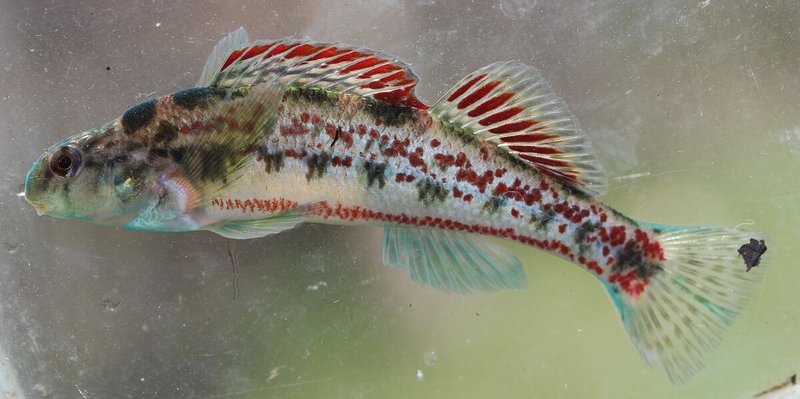For Immediate Release, November 13, 2025
|
Contact: |
Will Harlan, Center for Biological Diversity, (828) 230-6818, [email protected] |
Petition Seeks Endangered Species Protection for Imperiled Alabama Fish
Proposed Data Center Would Destroy Remaining Habitat, Pollute Rural Community
BIRMINGHAM, Ala.— The Center for Biological Diversity filed a petition today with the U.S. Fish and Wildlife Service to protect the Birmingham darter under the Endangered Species Act.
Only six populations of this rare fish remain in a single creek system outside Birmingham, Alabama. They face an imminent threat from one of the nation’s largest proposed data centers.
“These phenomenal fish will slide further toward extinction if this data center is built, so we have to act fast,” said Will Harlan, Southeast director at the Center for Biological Diversity. “They’ve been swimming in these creeks for millions of years, but without immediate protections they’ll disappear forever.”
The Bessemer City Council will vote on the proposed data center on Tuesday, Nov. 18. The city council and developers have refused to release the project’s health and environmental studies.
Birmingham darters are 2-inch-long fish with turquoise fins and red-streaked bodies. They are a newly discovered species that only occurs in Valley Creek and its tributaries, some of which could be completely dewatered if the data center is built.
“The proposed construction of a hyperscale data center in Bessemer poses an imminent threat to the Birmingham darter,” said Charles Miller, policy director at the Alabama Rivers Alliance. “The fact that this, and several other rare darter species found only in Alabama, were first described this year is a stark reminder that we are still uncovering the depth of world-class aquatic biodiversity in our state. Protecting this irreplicable natural legacy will benefit Alabamians for far longer than allowing out-of-state developers to make a quick buck.”
Developers have proposed constructing 18 Walmart-Supercenter-sized buildings that will consume at least 2 million gallons of water a day. Much of the darter’s habitat has already been severely polluted by mining and industrial activity, but the stream where the data center is proposed is relatively undisturbed — for now. The fish also face other threats, including a limestone quarry that has decimated a population, urbanization and climate change.
People living nearby have expressed widespread opposition to the data center because it will dry up creeks, pollute the air and water, and harm their community’s health and rural character.
“Our opposition in the build out of the Bessemer hyperscale data center is in protection of the most vulnerable amongst us,” said the Rev. Michael Malcom, board member of The People's Justice Council. “This hyperscale data center proposes harm to the Birmingham darter’s existence. As a faith leader and the leader of The People’s Justice Council, it is my call to remind us that the Earth is the Lord’s and all that dwells in it. We are stewards of creation and are being judged as such. Protecting creation is our growing edge. The time is now!”
The proposed data center also threatens the federally endangered watercress darter and the Watercress Darter National Wildlife Refuge only a few miles away.
“The data center would be a death blow to two of the most endangered fish in the country,” Harlan said. “Fortunately, local residents fiercely oppose the data center. They’re fighting for their health, these fish and the future of their community.”
“In a state where polluting industry and development are incentivized and natural resources are overlooked, we must do a better job safeguarding our remaining intact ecosystems, spring-fed streams, and native fishes that call them home,” said Nelson Brooke, Riverkeeper for Black Warrior Riverkeeper.

The Center for Biological Diversity is a national, nonprofit conservation organization with more than 1.8 million members and online activists dedicated to the protection of endangered species and wild places.

